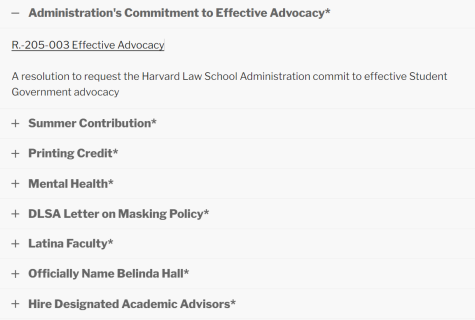Resolutions: The editorial voice SGA should utilize
March 27, 2023
Generally used to proclaim support or disagreement with administrative policies and decisions, resolutions can offer a powerful tool to student government associations. They afford student bodies with a stronger voice, improve student-opinion transparency, and can help foster a stronger sense of school community. Resolutions allow a student government association to better express a position on a particular issue or topic on behalf of the study body it represents.
Perhaps more importantly, though, the use of resolutions by the Cherry Hill High School East Student Government Association (SGA) could offer a potential solution to community criticism about a lack of student voice. If the East SGA more actively wrote and passed resolutions, for example, students may feel that their voice was more actively heard and expressed.

“There’s very little [SGA] can do,… which is why some kids have issues with the school,” Aaron Mirowitz (‘26) told Eastside Online. “I feel like [SGA] should have the power to do the change I want in the school,” he added, later also expressing support for the SGA to use resolutions more frequently.
Resolutions would undoubtedly grant East SGA additional powers to cause the change that Mirowitz and others want. Take Harvard Law School’s student government association, for example, which passed fourteen resolutions last year, condemning the Russian War on Ukraine and requesting the installation of more microwaves on campus, among other things. Such resolutions empowered the Harvard student body to better make formal, direct communications to school administrative officials.
Resolutions have another important benefit too: they provide the SGA with editorial power. Eastside, which usually includes editorials in each of its issues, uses editorial power to support or condemn different policies or actions made in the community and even call for various community reforms. In the past, for example, Eastside has encouraged the district to make the PSAT optional for sophomores, supported the uncensored production of Ragtime, and called for better changing options for genderqueer students.
The SGA has authored formal messages directed at school administration in the past. Yet today no SGA system for passing or creating actual resolutions exists. If the SGA created a process to pass resolutions, though, the student body would be able to better respond to issues and crises within our community — and in a timely manner too.